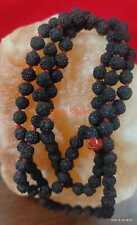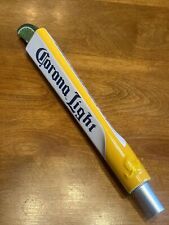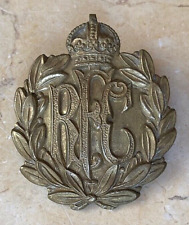When you click on links to various merchants on this site and make a purchase, this can result in this site earning a commission. Affiliate programs and affiliations include, but are not limited to, the eBay Partner Network.
Unit for Special OperationsActive1991 – 2003CountryFederal Republic of Yugoslavia
State Union of Serbia and MontenegroBranchState Security ServiceTypeSpecial forcesRoleBlack ops
Counter-terrorism
Hostage resolutionGarrison/HQKulaNickname(s)Red Berets
FrenkiesMascotWolfDisbanded25 March 2003Notable: Franko Simatović,
Commanders: Milorad Ulemek
Jedinica za specijalne operacije (Unit for Special Operations) or JSO, was an elite special forces police unit of the Yugoslav State Security Service (RDB).
The JSO was created in 1996 by merging paramilitary units under the command of Željko Ražnatović \"Arkan\" and Franko Simatović and incorporating them into the security system of the FR Yugoslavia under the auspice of Jovica Stanišić, head of the RDB. From 1996 to November 2001, it was formally under the competence of the RDB. The unit was finally disbanded in March 2003, after the Prime Minister of Serbia Zoran Đinđić was assassinated as a result of a conspiracy in which some members of the unit were involved
Patrons and numerous members and of the unit and its predecessors have been implicated and some sentenced, for war crimes during the Yugoslav Wars, as well as criminal activity. The unit\'s official commander Franko Simatović and its gray eminence Jovica Stanišić (head of RDS during Slobodan Milošević rule) were acquitted at International Criminal Tribunal for the former Yugoslavia for various war crimes. Various other members are convicted or being tried for the Ibar Highway assassination attempt and for the murders of Ivan Stambolić and Slavko Ćuruvija. The JSO was also reportedly involved in instances of war crimes in the Kosovo War.
HISTORY of JSO
The origins of the JSO can be traced back to April 1991, on the eve of Croatian War of Independence, when a paramilitary group led by Franko Simatović and Dragan Vasiljković set off from Belgrade to Knin. Several days earlier, on March 16, Milošević promised \"preparations of appropriate units capable of defending interests of Serbia and Serb people outside Serbia\" in a closed session with Serbian municipal presidents.[3] The order of creating such a unit was given to Jovica Stanišić, Milošević\'s strongman and head of RDB, which committed the task to Stanišić. The unit had not have any formal connections with Belgrade, so the operation was taken solely within RDB, without involvement of Serbian Ministry of the Interior. In Knin, Simatović and Vasiljković contacted Milan Martić, minister of the interior of Republic of Serbian Krajina, who subordinated a group of fighters under Vasiljković\'s command, who gave them thorough training and imposed the discipline;[3] the unit would later become known under the name Knindže (a pun on \"Knin\" and \"ninja\"), and Vasiljković under the war name \"Kapetan Dragan\".[4] The name \"Red Berets\" came after the battle for Glina, when Vasiljković distributed the berets to his men.[3]
The other wing of the unit was apparently formed in May 1991, in Eastern Slavonia. According to the hints given by Simatović, the unit seems to have been involved in Borovo Selo killings on 1–2 May, when 12 Croatian policemen were killed and several tens wounded. May 4 will later be taken as the unit\'s anniversary. According to several witness accounts, Radovan Stojičić \"Badža\", an official of the Serbian ministry of interior, was in charge of operations in Eastern Slavonia.[3][5] Upon the arrival in the Eastern Slavonia theater, Željko Ražnatović \"Arkan\" took over the paramilitary unit under the name of \"Serbian Volunteer Guard\", better known as \"Arkan\'s Tigers\".[6]
These two paramilitary units were allegedly the core of future JSO. The joint unit was officially formed in 1994, although under the name of Unit for anti-terrorist action (Jedinica za antiteroristička dejstva, JATD), one year before the wars in Bosnia and Croatia came to an end.[7][8] The JATD first consisted of light mobile artillery and infantry. The unit operated as a part of the Serbian State Security (Resor Državne bezbednosti), which was then a part of Serbia\'s Interior ministry.
The members of the unit first came into public eye during a 1995 hostage crisis when UN personnel were being held captive by the Army of Republika Srpska. The unit members provided support for Jovica Stanišić, a high-ranking official of Serbian State Security, who, acting as a mediator, arranged for the safe release of the hostages.[9][10]
In 1996, one year after the Dayton Agreement and the end of conflicts in Croatia and Bosnia, JATD was re-structured and renamed to Jedinica za specijalne operacije, or JSO. A former Yugoslav People\'s Army barracks in Kula was chosen for its base camp.
At the very beginning of the Kosovo War, the unit was ordered to set up a temporary base of operations on the Goč mountain, near Kosovo. From there, JSO launched a number of operations aimed against the Kosovo Liberation Army. One of their first actions was the 1998 successful assault on the KLA commander Adem Jashari\'s hideout. Later in 1999, the unit engaged in a fierce battle in and around Peć.[11] Unit operated a wide variety of armored vehicles, including American-made Hummers procured via Cyprus, which all proved to be effective for quick operations under constant NATO aerial bombardment. After the Kumanovo Agreement and subsequent end of the war, the JSO, alongside the police and armed forces, left Kosovo.
On October 3, 1999, a vehicle column of Serbian Renewal Movement (SPO), one of Serbia\'s largest opposition parties at the time, was attacked while en route through central Serbia. SPO officials Veselin Bošković, Zvonko Osmajlić, Vučko Rakočević and Dragan Vušurović were killed in the staged accident and SPO president Drašković was injured. In a ruling by the Belgrade District Court on February 16, 2007, former State Security officer and unit\'s commander Milorad Ulemek, a.k.a. Legija, was sentenced to 15 years in prison and former State Security chief Radomir Marković received eight years. Members of the Special Operations Unit, JSO, Duško Maričić, Branko Berček, Nenad Bujošević and Leonid Milivojević were sentenced to 14 years in prison.[12]
On August 25 2000, former president of Serbia and once a rival of Milošević\'s, Ivan Stambolić was detained by the police.[13] Soon after, he was gone missing during his every-day jogging routine. His remains were uncovered on March 28th 2003 in Fruška Gora.[14] After a yearlong trial in Serbia\'s special court in Belgrade, a judge found Radomir Marković and Milorad Ulemek, guilty of planning and carrying out the assassination of Ivan Stambolić.[15]
The unit\'s role in the 2000 Overthrow of Slobodan Milošević remained, to this day, somewhat controversial. On October 4, opposition leader Zoran Đinđić met with JSO commander Milorad Ulemek. Ulemek struck a bargain with Đinđić that he and his unit will stand down as long as the police are not attacked.[16] The unit was most likely given order to storm the protesters, who rallied in downtown Belgrade on October 5. But soon after the unit\'s characteristic armored Hummers appeared in front of the protesters, the vehicles simply returned to base. Later, in his book titled \"Peti oktobar\" (\"October 5\"), former State Security chief Radomir Marković claimed he was the one who ordered the unit to be deployed in Belgrade. [17]
The policy of the new government, especially regarding the indictment of the former Serbian war leaders by the International Criminal Tribunal for the former Yugoslavia, was met with harsh disagreement from the unit\'s commanding officers. In 2001, JSO engaged in a mutiny, blocking the Belgrade-Niš highway.[18] The official reason for the mutiny, was an order given to the unit to arrest the Banović brothers, wanted by the ICTY. After a few days of harsh negotiations, the JSO\'s mutiny ended.









